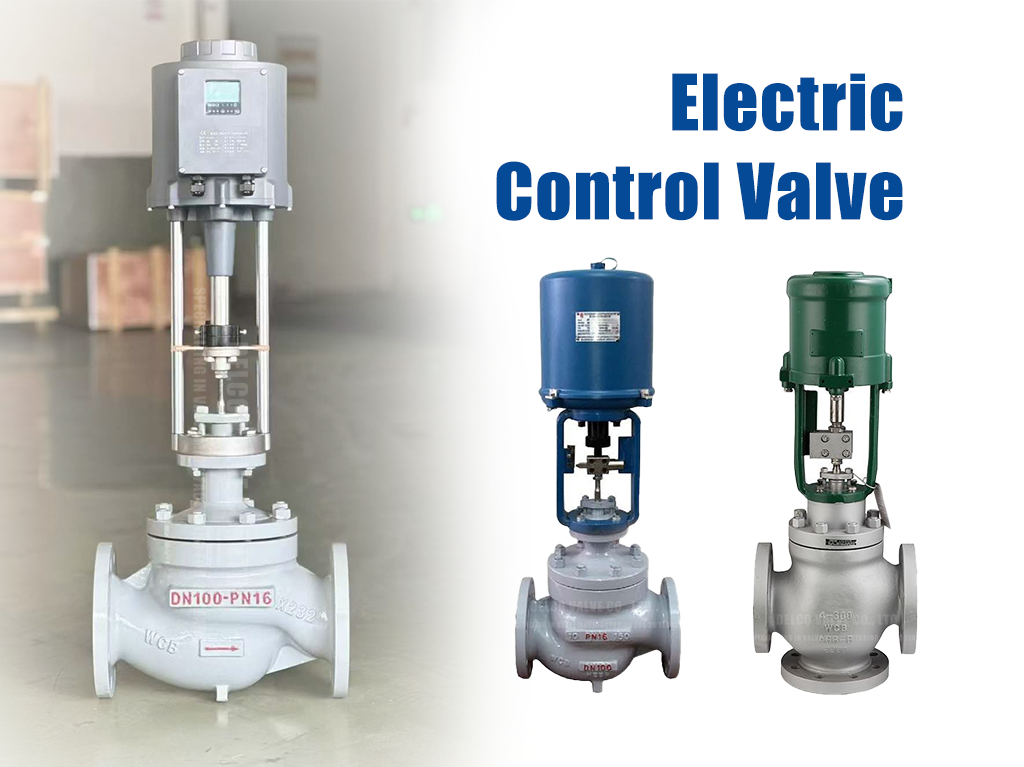BLOG
DELCO Valve poskytuje různá optimální řešení pro průmyslové ventily, zejména pro regulační ventily.
TAGY
Kontaktujte nás
Electric Control Valve Basics: Principles, Structures and Applications
- Ventil DELCO
Elektrický regulační ventil is an important device in modern fluid control system. It is widely used in industrial manufacturing, energy management and building HVAC and other fields. In this article, DELCO Valve will provide a comprehensive analysis of its definition, working principle, structure and applications.
What is an Electric Control Valve?
Electric control valve is a device that controls the opening and closing of a valve or regulates it by means of an electric actuator. Its function is to regulate the flow, pressure or temperature of the fluid according to the signal from the control system. For example, in a heating system, an electric control valve can regulate the flow of hot water according to the indoor temperature demand.
Working Principle
The core of an Electric Control Valve is the electric actuator. It receives electrical signals from the control system and drives the valve stem to move up and down or rotate.
Main Components
- Valve body: the main channel of the fluid, common materials include stainless steel, cast iron and PVC, suitable for different media and working conditions.
- Valve spool: the key component to control the flow of fluid. It is in direct contact with the fluid, by changing the flow area between itself and the valve seat to control the fluid flow.
- Valve seat: cooperates with the valve spool to form a sealing surface, in order to realize the truncation and regulation of the fluid.
- Electric actuator: the electric actuator receives the signal and drives the spool action, with high precision and supports remote control.
The Role of Electric Control Valve
- Flow regulation: adjust the degree of opening of the valve according to the need to achieve accurate control of the flow of fluid media.
- Pressure control: accurately adjust the opening degree of the valve to control and stabilize the pressure of the fluid medium.
- Temperature control: adjust the flow rate of the heat medium by controlling the opening degree of the valve.
- Process control: electric control valves are widely used in industrial automation control systems to realize the stability control of the process.
Scénáře použití
- Chemical industry: electric control valves can be used in various chemical processes, such as reactor control, mixture modulation, pipeline transportation and other scenarios.
- Power industry: applied to steam turbine, boiler and other equipment, water vapor control, fuel supply and flue gas regulation and other processes.
- Water treatment industry: in sewage treatment, water supply and other water treatment systems, control water flow, water pressure and water temperature.
- Petrochemical industry: in the oil, natural gas transportation and storage process, control the flow of fluid media, pressure and temperature.
- Pharmaceutical industry: electric control valve can meet the requirements of the pharmaceutical process on the fluid flow parameters.
- Food and beverage industry: in the food and beverage processing, the liquid flow, temperature and pressure control.
Závěr
Electric Control Valve is the basic equipment in modern fluid control system. DELCO Valve is a valve manufacturer with 20 years of experience, if you need more valve related advice, please feel free to contact us!



